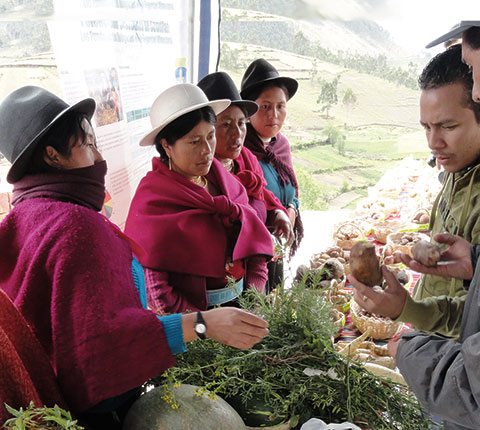My Projects and Priorities
Shortly after a friend retired, I asked her to serve on a board that could use her knowledge, experience, and skills. She responded by pulling a small card out of her pocket, handing it to me; she asked me to read it. It said: “My Retirement Priorities.” Under it, she had listed four items.
After I read the list, she asked me: “Where does this [serving on the board] fit on my list?” Looking at it again, I responded, “It doesn’t.”
Though she did not accept the opportunity I had proposed, I learned a very important lesson that day; I needed to set priorities in retirement just as I did in my professional life. When I announced my retirement several years later, she asked me, “And what are your retirement priorities?”
This is my answer:
My service on the LCC International University board

I serve as a trustee for LCC International University (located in Klaipeda, Lithuania) and chair the board’s academic committee. LCC is the only fully accredited, Christian liberal arts university in Eastern Europe. It enrolls 600-700 students who have come from 50+ countries to work toward baccalaureate degrees (or master’s degrees in select areas). The university’s mission statement lays out its purpose:
LCC International University provides Christian liberal arts education within a diverse learning community that transforms people for servant leadership.
LCC is distinctive in Eastern Europe as a Christian liberal arts university that emphases several core competencies: critical thinking, conflict transformation, multicultural perspective, effective community, Christian worldview, servant leadership, multidisciplinary knowledge, and community building. It is international both in its composition (the students, faculty, and staff) and its programs (the content of courses, teaching approach, and student life). It provides a North American style of education in an Eastern European context. It’s relational, reflecting the fact that student transformation takes place within the context of community and one-on-one relationships. LCC is distinctive by philanthropic identity in its life and mission. It is a community of global citizens who share a responsibility to collectively care for people in need.
In addition to chairing the academic committee, I also serve on the executive committee and governance committee. While visiting campus for board meetings, I frequently give lectures to classes on some aspect of facilitation of learning or community-based development practice.
Here is a link to LCC: https://lcc.lt
Chair the board of Groundswell International, Inc.
Groundswell International, based in Washington, DC, was established in 2009 to work with small farmers and rural communities, particularly in Africa, Latin America, the Caribbean, and East Asia.

Groundswell’s mission statement lays out its goals and priorities:
Groundswell International strengthens the capacity of people, communities, and farmers’ organizations to create healthy farming and food systems from the ground up. We work with smallholder farmers—prioritizing marginalized women—to address the root causes of food insecurity, environmental degradation, climate change, and social and economic vulnerability. Our approach catalyzes a virtual cycle of regeneration and growth, reversing the downward spiral of poverty and vulnerability.
Groundswell supports farmers’ groups in “learning by doing.” Farmers test ecological farming principles and practices, adopting those that work best on their own farms. They then share these lessons learned through farmer-to-farmer learning networks. As farmers come to reliably growing more of their own food, Groundswell supports them in building or strengthen local markets that help improve their economic well-being. To ensure that these gains are sustained and expanded, Groundswell works with allies to create an enabling policy context.
Here is the link to the Groundswell web site: https://www.groundswellinternational.org
TAOS: a study of the Tabor College Class of 1967
Over the years, several of my college friends and I who all graduated from Tabor College (Hillsboro, Kansas) in 1967, would discuss our college experience and how it influenced the trajectory of our lives and careers. After graduation, we all worked in Africa, went to graduate school, and then spent most of our careers in higher education.

We wondered what happened to our classmates since graduation: What where their vocations and careers? How did the college experience 50+ years ago influence the trajectory of their lives? What are their values and worldviews today?
Rather than wonder, we decided to ask them.
We had shared our plans for the study (and the survey instrument) with Tabor administrators who gave us their blessing and helped us track down some of our classmates. They had no input into the research design, the questionnaire, or this report. We carried out this study as independent researchers with no affiliation with any other organization, institution, or external funder.
The survey, to which the Tabor College Class of ‘67 responded anonymously, was conducted in December 2021. We asked our classmates to report and reflect on their childhoods, college experience, and careers. They shared their theological beliefs and practices, their political perspectives and political participation, their concerns about the nation and world, and involvement in their churches and communities.
The full report will be available shortly through a link on this website. We expect to produce several articles for publication that will focus in more depth on specific aspects of our study.
Presentations on Why College Matters and Student Success in College
I’ve become increasingly concerned that many students consider high school graduation the end of their formal education. Unfortunately, many fail to understand how significantly, having only a high school diploma, will limit their career options and economic mobility. That’s why I enjoy giving presentations to high school students and their families on how a college education opens doors and new opportunities for personal fulfillment and economic mobility.
While working at the U.S. Department of Education, I reviewed the literature on “college success.” In my research, I found a broad consensus about the factors that help students succeed in college. I’ve drawn data from recent studies and incorporated them into presentations for high school students and their parents/guardians. Having recently moved to Kansas, I would welcome invitations from high schools and church groups to share these data.